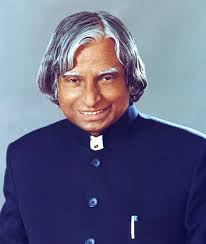Remembering A P J Abdul Kalam: The People’s President

Introduction
A P J Abdul Kalam, fondly known as the “People’s President,” was not only a brilliant scientist but also an inspirational leader who significantly shaped India’s technological landscape. Born on October 15, 1931, his contributions to space technology and missile development earned him a revered place in India’s history. His emphasis on education and youth empowerment continues to resonate across the nation, making his legacy highly relevant today.
Key Contributions
Dr. Kalam was pivotal in the Indian space program and missile development. As the chief architect of the Integrated Guided Missile Development Program, he was instrumental in the successful launch of India’s first satellite launch vehicle, SLV-3, in 1980. His work in the DRDO (Defence Research and Development Organisation) and ISRO (Indian Space Research Organisation) marked a turning point in India’s defense capabilities.
In addition to his scientific endeavors, Kalam served as the 11th President of India from 2002 to 2007, advocating for India’s vision of becoming a developed nation by 2020 through innovation and education. With his notable book, “Wings of Fire,” he inspired millions of young Indians to dream big and work hard to achieve their goals.
Education and Empowerment
Dr. Kalam believed that education is the key to unlocking a nation’s potential. He strongly promoted the idea of skill development and technology-enhanced education for the youth. His initiative, “Ignite Minds,” aimed to inspire children to develop a scientific temperament and creativity. He traveled extensively, engaging with students and encouraging them to pursue careers in science and technology.
Legacy and Impact
Even after his passing on July 27, 2015, Kalam’s influence remains strong. Numerous schools, colleges, and institutions across India are named after him, and his teachings are an essential part of educational syllabuses aimed at nurturing future leaders. His vision for a “Knowledge Society” continues to motivate educational reforms and innovation in India.
Conclusion
APJ Abdul Kalam’s legacy as a scientist, educator, and leader will continue to inspire generations to come. His life’s work reminds us of the importance of vision, hard work, and integrity in achieving excellence. For current and future leaders, his life is a testament to the impact of dedication and dream big, embodying the spirit of a true visionary driving India’s progress.









